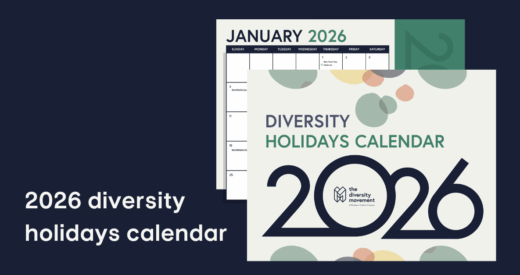As a diversity professional and a teacher, uncomfortable conversations are part of my job. Every day is a new opportunity to explore the words and topics that make people feel awkward, to think about why that discomfort exists, and to lead the teams I’m working with toward more inclusive language and actions. We talk about racism, disability, unconscious bias, microaggressions, and exclusion. We talk about prejudice and otherness and identity. That is such vulnerable and emotional work. But I’ll tell you, privilege is the one word and topic that always elicits a strong allergic reaction.
For most people, privilege is a dirty word. It carries a stigma that feels shameful and heavy. People who align themselves with privilege — who feel that they have it — often feel guilty and embarrassed of what they have. People who don’t align with privilege usually feel embarrassed too: ashamed of the advantages they did not have. It’s easy to believe there are only two sides, but as someone who has led thousands of people through Privilege Walks, I promise you that’s just not true.
Let’s get levelset
Privilege is a complex topic because people often associate it with one race, one gender, or with affluence and because it is sometimes interpreted as carrying an accusation or a condemnation. However, in order to move beyond the resistance I see regularly associated with the notion of privilege and subsequently to leverage its benefits, the first thing we need to do is broaden its scope.
Privilege is not exclusive to white people, men, or the wealthy, nor is it ubiquitous within those identity groups. For example, we often hear the term ‘white privilege,’ but are we considering the privilege of having two supportive parents? Of being financially secure? Of physical safety in daily life? Of mobility? Of speaking the primary language at your school?
Privilege is reflected in many situations, many lifestyles, and many demographics. We all see the world through our own limited frame of experience. Almost every one of us has some privilege that we can leverage to build a better culture, and almost every one of us has overcome some challenges as well. The more we are able to levelset the concept of privilege — and to be clear, not the experience of privilege but the concept of privilege — the more we are able to recognize and discuss it.
It’s not about you, it’s bias
Privileges often have nothing to do with how hard you, personally, have worked. In Privilege Walks, I sometimes get pushback from people who made their own way in the world and have worked hard for their own successes. I think it’s important to celebrate those accomplishments, but I also urge people to remember that privilege is not necessarily a reflection of you so much as the perception and assumption to others about who you are and what you’re capable of.
Do you feel safe, valued, and welcome in every situation in your daily life? It’s important to recognize that not everyone has that equal privilege.
Privilege is not a mechanism by which to say you did not work hard. It simply means there weren’t additional obstacles for you to overcome on your way to success due to your identity, background, history, or culture. Often, the concept of privilege feels accusatory, and so we become defensive and resistant. We are asked to acknowledge and examine our privilege without knowing what to do with that knowledge. What are the next steps? Where do I go from here?
Understanding privilege is a step toward empathy and helps to build a more inclusive culture. It helps us realize that there is so much more to people than the few personas they introduce to you. Each of us has a complete identity iceberg — part of us floats up high for public viewing, but there is so much more hidden below the surface.
Pay your privilege forward
In Privilege Walks, I have people focus on the future. If they discover high levels of privilege in our walk, I ask them to use those advantages to advocate for equity and inclusion across their organizations and communities. If they find they have overcome significant obstacles, I ask them to use that experience to inspire others to be empathetic leaders and culture drivers.
At The Diversity Movement, we are a firm focused on action and behavior change, not just understanding and awareness. We know that recognizing privilege does not naturally lead to changed behavior. In other words, it’s not enough simply to recognize your privileges and challenges. Go and put them to work! Whether your privilege is abundant or scarce, you can leverage the power of your experience to advocate for others. Your voice is so important to allyship.
There are two primary ways to pay your privileges forward: time and resources. Invest your time by volunteering or mentoring. Accept more of those 20 minute (virtual) cups of coffee to give aspiring professionals actionable advice and a moment of real networking connection. Diversify your outlay of resources by supporting culturally diverse businesses, offering internships, and investing in startups headed by underrepresented founders. Pour into others, especially those who have not been afforded your privileges.
Leveraging your privilege and paying it forward encourages cross-cultural and cross-experiential empathy, providing authentic opportunities to see beyond the professional persona and connect with people on a more personal level. By doing so, we can destigmatize privilege and unlock its potential instead.
Interested in learning more about privilege walks? Check out our brief video or podcast episode as we explain the process and experience. If you’re interested in The Diversity Movement hosting a privilege walk for your organization, contact us.






